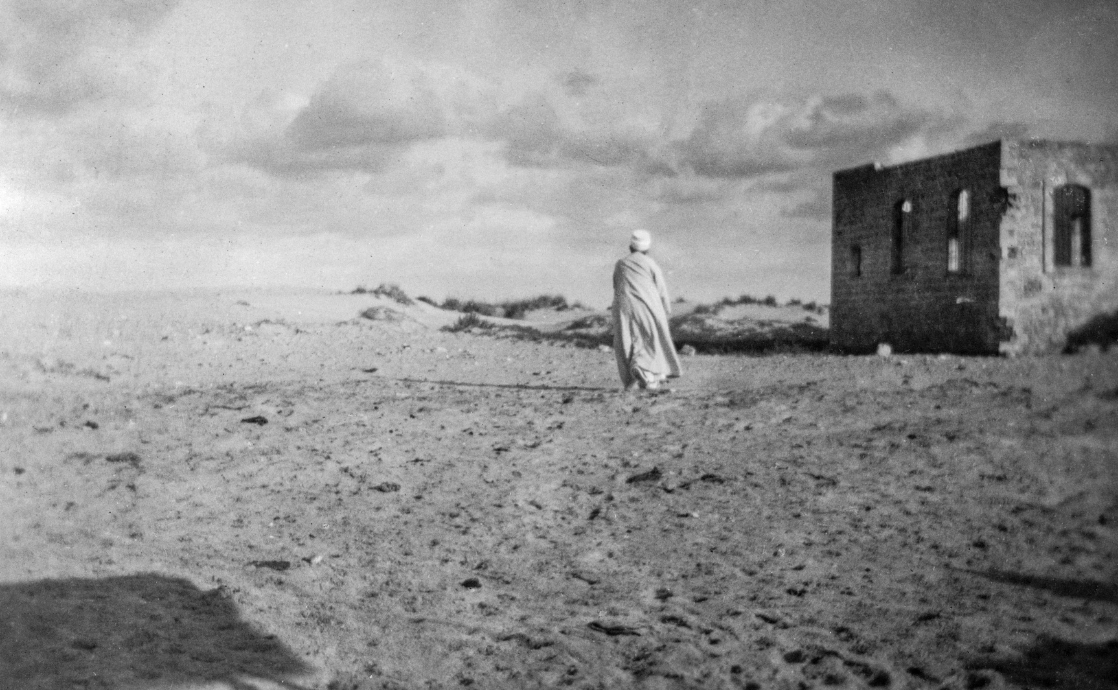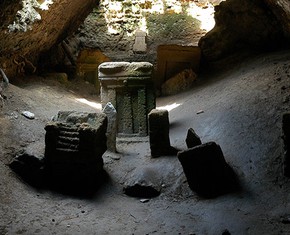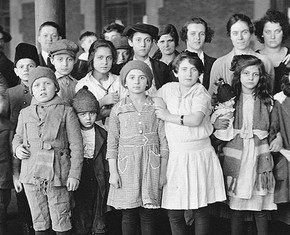The views expressed in our content reflect individual perspectives and do not represent the authoritative views of the Baha'i Faith.
Generally speaking, all prophecy, as set forth in the sacred texts of the world’s religions, boils down to this simple fact: Old prophets foretell new prophets.
Of course, the prophets of antiquity spoke and wrote of telltale “Doomsday” scenarios — dire predictions that would serve as “signs of the times.” Their prophecies would alert the world to imminent, momentous, catastrophic, and far-sweeping changes on the historical horizon, as captured in the familiar and now satirical warning: “The end is near!”
Yet an end also signifies a beginning, where the past gives way to the future.
RELATED: What Happens to Love When We Die? The Passing of Abdu’l-Baha
So now may be a good time to focus on the new prophet that the old prophets foretold: Baha’u’llah. Let’s take a fresh look at the new teachings he brought.
Baha’u’llah’s newly-revealed spiritual principles not only fulfilled past prophecies, but the principles themselves are prophecies, too, because they inform and will transform the world, thereby ushering in the future.
Among the many talks that Abdu’l-Baha, Baha’u’llah’s son and successor, gave across the United States and Canada during his trip to North America in 1912, several presented the new and distinctive principles Baha’u’llah promulgated. Which of these 140 talks by Abdu’l-Baha would you choose as the most consequential? Better still, which would Abdu’l-Baha himself have singled out? That remained a hypothetical question until now.
According to an authenticated Persian text, with a newly authorized translation recently posted by the Baha’i World Center and published online (on or before August 26, 2024) in the Baha’i Reference Library (see “Additional Tablets, Extracts and Talks” and find the “First Line” that reads, “No talk is there in town save of the loved one’s rippling …”), Abdu’l-Baha provides a key to the answer to this question:
So resoundingly was the Divine Call raised that all ears were thrilled by it and all souls stirred. “What call is this,” minds marvelled, “that hath been so raised? What star is this, that hath thus risen in the heavens?” Some were lost in wonder, others made inquiry; still others set forth proofs and arguments. All confessed that the teachings of Baha’u’llah were, in truth, unparalleled, and that they constituted the spirit of this age, the illumination of this century. At most, such criticism as was voiced against them did not extend beyond the claim that similar teachings had been enunciated in the Gospel, in reply to which we said: “Among these teachings is the unity of mankind — show us in which book this is recorded. Another teaching is universal peace — in which book is this? That religion should be a cause of love and unity, otherwise it would be better to do without it — in which book is this? And that religion should be conformable with sound reason and true knowledge — in which book is this? In which book hath the equality of men and women been established? And the elimination of all forms of prejudice, whether of creed, religion, nation, politics, or race — in which book is this?” These and similar considerations we set forth in reply.
This authorized translation, quoted above, is part of a longer talk, “Talk Given by Abdu’l-Baha in Port Sa’id on 19 June 1913” (provisional translation by Adib Masumian). Abdu’l-Baha’s “in which book is this?” discourse occurs at the very end of this fascinating talk in Egypt.
In that seminal talk, Abdu’l-Baha harks back to two key New York speeches he gave on Friday, November 15, 1912, and on Monday, December 2, 1912 — the stenographic English transcripts of which were first published in the Baha’i magazine, Star of the West, then later edited (with some editorial license) by Howard McNutt and published under the title The Promulgation of Universal Peace.
On September 14, 2023, as announced earlier in Part 82 of this continuing “Figuring Out Prophecy” series, the original Persian language transcript of Abdu’l-Baha’s speech on Monday, December 2, 1912, was quietly published online and added to the official Baha’i Reference Library.
Why is this important?
Because here, for the very first time in Baha’i history, an authenticated Persian transcript of Abdu’l-Baha’s historic December 2, 1912 speech has come to light. We now know what Abdu’l-Baha stated on that memorable occasion, especially in direct response to the question about what new things Baha’u’llah taught.
We can clearly see from these two important addresses that the Baha’i Faith is not a mere restatement of past religious teachings, or a syncretic re-fashioning of ancient truths, but an entirely new global Faith, with unprecedented principles and priorities.
RELATED: Walking in Abdu’l-Baha’s (Actual) Footsteps
I’ve attempted to combine and simplify Abdu’l-Baha’s two discourses on November 15, 1912, and December 2, 1912, by listing those new principles in my introductory book, “Baha’i Faith: The Basics.” There, Abdu’l-Baha’s presentation of Baha’u’llah’s new and distinctive principles are expressed as dynamic actions in the form of the following fifteen special Baha’i teachings:
1. Search for truth
2. See humankind as one
3. See religion as one
4. Religions should unify
5. Religion respects science
6. Women and men are equal
7. Abolish every prejudice
8. Promote world peace
9. Provide education for all
10. Economic problems require spiritual solutions
11. The Universal House of Justice is unique
12. The special Baha’i Covenant protects Baha’i unity
13. Adopt a universal auxiliary language
14. Work is worship
15. The Baha’i Faith offers other new principles
Baha’u’llah’s remedies for our world’s social ills in this day and age, with their dynamic and transformative power, elucidate principles and prophecies that have the potential, and indeed hold the promise of ushering in humanity’s golden age in our not too far distant future.
In the next essay in this “Figuring Out Prophecy” series, we’ll turn our attention to the prospect of hastening the fulfillment of that golden age through these profound, prophetic Baha’i principles. Let’s figure out how to do this.
















Comments
Sign in or create an account
Continue with Googleor